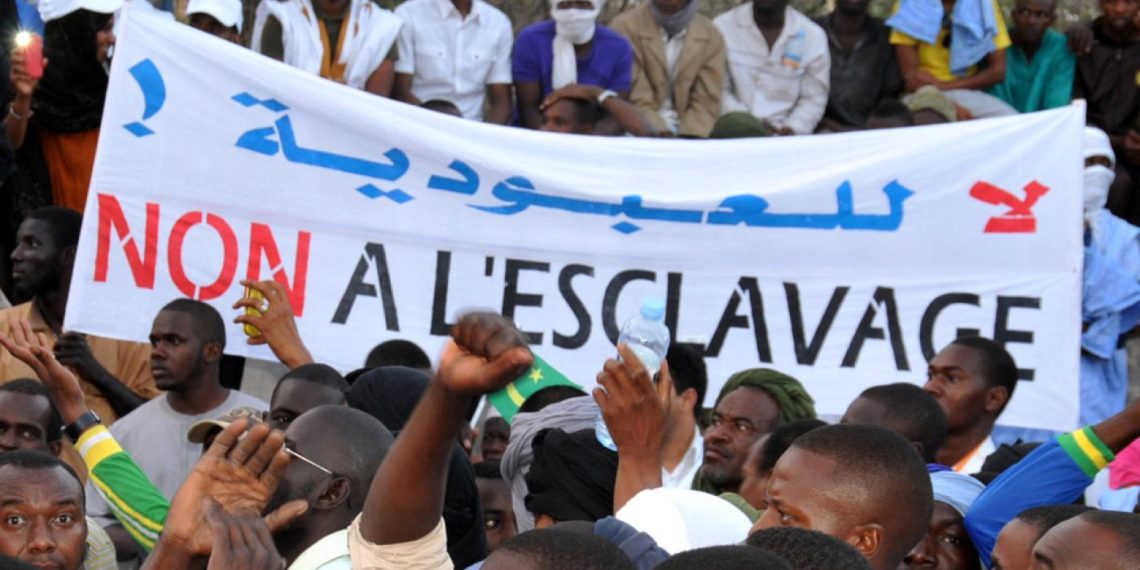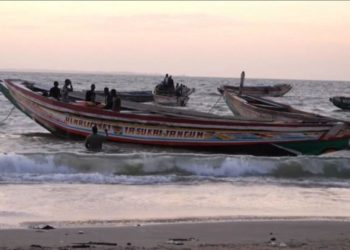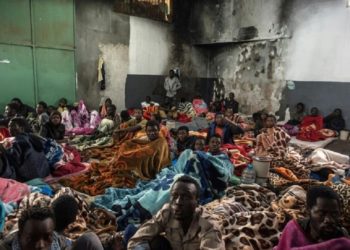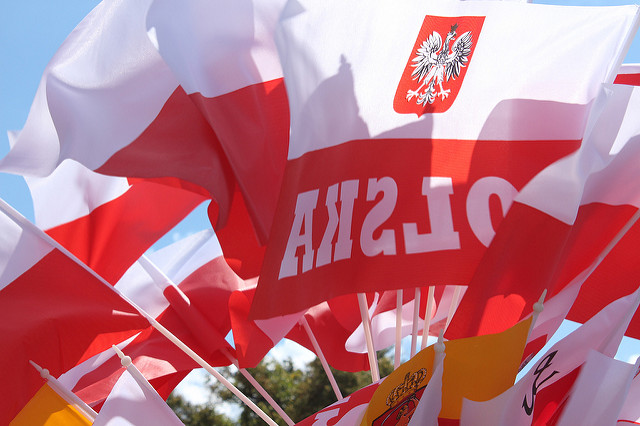The brothers Said and Yarg Salem were born into Mauritania’s inherent slavery. As the property of their master, they had no choice but to do as they were told. They spent their days toiling in the blazing sun and were frequently beaten. In 2011, Said managed to escape. With the assistance of his aunt and two local anti-slavery organizations, he pressed charges against his master, resulting in the rescue of his younger brother.
The two boys are now free and fight for justice. In January 2018, the African Union’s children’s rights committee ruled in the case of Said and Yarg Salem against Mauritania that the country’s authorities had failed to take adequate steps to prevent, investigate, prosecute, punish, and remedy the widespread practice of slavery, resulting in impunity.
Said and Yarg’s case is, unfortunately, representative of Mauritania’s current situation. In the African country, human trafficking is the third most important illegal business, after drug and weapon trafficking. Local human rights groups estimate that about 20 percent of the population lives in slavery.
Tradition of Slavery
Despite the adoption of an anti-trafficking law in 2003, the government’s capacity to address this multi-faceted phenomenon remains limited due to a long tradition of slavery.
For many years, Mauritania’s authorities denied that the country had a slavery problem, but in 2007, the government adopted the first law to criminalize traditional enslavement. Traditional slavery has been formally abolished in Mauritania only in 1981, as the world’s last country to do so.
The 2018 U.S. Department of State Trafficking in Persons Report placed Mauritania in the category of countries with the lowest record in fighting human trafficking. Mauritania was among the “countries whose governments do not fully meet the minimum standards and are not making significant efforts to do so.” However, the report recognized that the authorities had taken some steps to address the problem:
The government convicted three slaveholders; allocated increased funding to the Ministry of Social Affairs, Childhood, and Family to improve shelter and services trafficking victims could access; and Tadamoun, the government agency mandated to address poverty and the “vestiges of slavery,” continued efforts to reduce socio-economic inequality.
Despite these gains, the current situation of fighting all forms of slavery in Mauritania seems to cast more shadows than lights.
Anti-Slavery Activists
For example, authorities continue to prevent anti-slavery activists from operating in the country. Moreover, these activists face an increase in harassment. In August, two members of an anti-slavery organization were arbitrarily arrested in the capital Nouakchott, charged and then denied access to legal representation. Two years earlier, thirteen activists were sentenced to up to 15 years in prison for their alleged role in a riot.
According to a 2018 Human Rights Watch report, until last year, only two persons had been convicted for slavery.
Government agencies charged with combating trafficking of persons and slavery continue to lack the resources and personnel, even with Mauritania adopting a road map in 2014 to eradicate all forms of slavery.
Public Awareness and Misinformation
In this sense, authorities are making some efforts to raise public awareness through campaigns that delegitimize slavery, and they have worked with religious leaders and civil society to this end.
The African Commission on Human and Peoples’ Rights certified this effort in 2016. Against this backdrop, Mauritania’s Ministry of Social Affairs, Childhood, and Family has been praised by the U.S. 2018 Trafficking in Persons Report for its effort to manage seven public day centers for the protection and social integration of children, which trafficking victims could access.
A cycle of slavery – Mbarka was born a slave in Mauritania because her mother was one. Today, as a free woman, she seeks a better future for her seven children.
Follow her story in our in-depth #LifeAfterSlavery feature here: https://t.co/78HrQmiGmF | #TacklingModernSlavery pic.twitter.com/jP5IqREjgJ
— Context News (@ContextNewsroom) March 1, 2019
Yet, the country’s road to defeat all forms of slavery is long and paved with obstacles. For example, many victims may not know or don’t want to admit that they are enslaved, either out of fear or ignorance. In addition, misinformation keeps slavery in Mauritania alive. Slave masters abuse victim’s faith, misleading them to believe that God wishes them to be a slave.
Finally, geographic isolation also contributes to the problem. Many enslaved Mauritanians live in rural desert areas, and the harsh surrounding environment leaves them with nowhere to go, even if they want to escape.
Fighting Slavery in Mauritania
Mauritanian authorities need to make more efforts to train authorities to identify trafficking and slavery victims and refer them to care, while also instituting measures to support victims during investigations, including easier access to legal assistance.
Moreover, the government should legally recognize eligible anti-trafficking NGOs, allow them to operate freely in the country, and cease harassment against anti-slavery activists.
Last but not least, the implementation of Mauritania’s 2014 anti-slavery road map and the U.N.’s regional strategy for West and Central Africa (2015-2020) to fight human trafficking will raise public awareness.
Only when the nation can understand and be aware of the issue, and when the government takes adequate steps to fight this problem, boys like Said and Yarg can rejoice in their childhood and grow up in a country free from slavery.
Disclaimer: The views and opinions expressed here are those of the author and do not necessarily reflect the editorial position of The Globe Post.



















